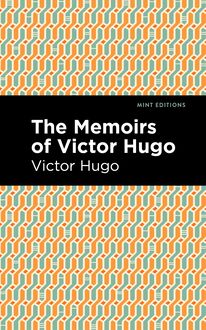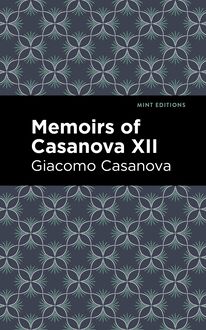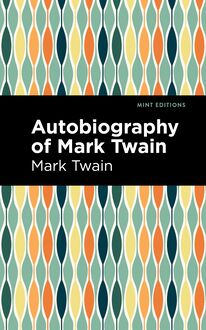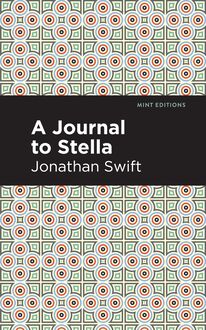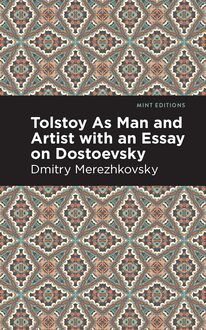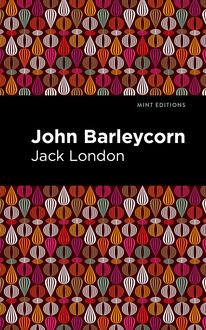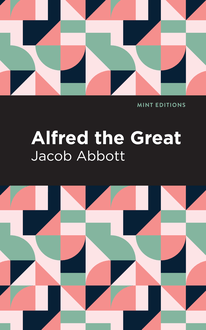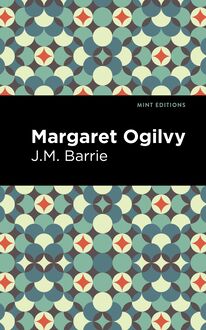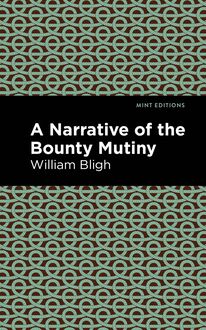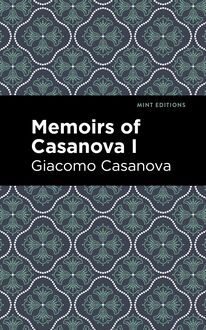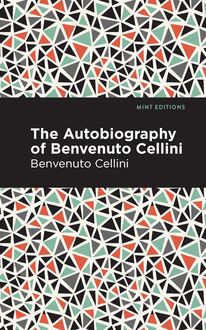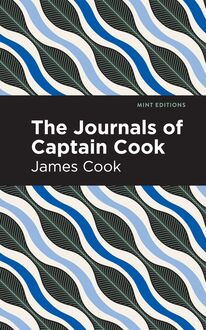-
 Univers
Univers
-
 Ebooks
Ebooks
-
 Livres audio
Livres audio
-
 Presse
Presse
-
 Podcasts
Podcasts
-
 BD
BD
-
 Documents
Documents
-
- Cours
- Révisions
- Ressources pédagogiques
- Sciences de l’éducation
- Manuels scolaires
- Langues
- Travaux de classe
- Annales de BEP
- Etudes supérieures
- Maternelle et primaire
- Fiches de lecture
- Orientation scolaire
- Méthodologie
- Corrigés de devoir
- Annales d’examens et concours
- Annales du bac
- Annales du brevet
- Rapports de stage
La lecture à portée de main
Vous pourrez modifier la taille du texte de cet ouvrage
Découvre YouScribe en t'inscrivant gratuitement
Je m'inscrisDécouvre YouScribe en t'inscrivant gratuitement
Je m'inscrisEn savoir plus
Vous pourrez modifier la taille du texte de cet ouvrage
En savoir plus

Description
The Promised Land is a compelling account of one woman’s journey from Polotsk to Boston and her attempts to embrace a new culture and identity. Author Mary Antin highlights the old values and contemporary views that shaped her immigrant experience.
In The Promised Land, Antin recounts the many obstacles she encountered before and after emigrating to the U.S. Arriving in 1894, she details the years in Boston where she attempted to assimilate while facing religious, political and financial challenges. Despite hidden pitfalls and social barriers, Antin continued to make strides towards her American dream.
Although it centers a specific experience, The Promised Land is an aspirational story that speaks to a universal audience. Upon its release, the book was a resounding success for Antin, eventually selling more than 80,000 copies. It propelled her into a career of public speaking, which she used to address anti-immigration sentiment and invoke policy change.
With an eye-catching new cover, and professionally typeset manuscript, this edition of The Promised Land is both modern and readable.
Sujets
Informations
| Publié par | Mint Editions |
| Date de parution | 01 décembre 2020 |
| Nombre de lectures | 0 |
| EAN13 | 9781513272863 |
| Langue | English |
| Poids de l'ouvrage | 3 Mo |
Informations légales : prix de location à la page 0,0500€. Cette information est donnée uniquement à titre indicatif conformément à la législation en vigueur.
Extrait
The Promised Land
Mary Antin
The Promised Land was first published in 1912.
This edition published by Mint Editions 2020.
ISBN 9781513267869 | E-ISBN 9781513272863
Published by Mint Editions®
minteditionbooks .com
Publishing Director: Jennifer Newens
Design & Production: Rachel Lopez Metzger
Typesetting: Westchester Publishing Services
C ONTENTS I NTRODUCTION I. W ITHIN THE P ALE II. C HILDREN OF THE L AW III. B OTH THEIR H OUSES IV. D AILY B READ V. I R EMEMBER VI. T HE T REE OF K NOWLEDGE VII. T HE B OUNDARIES S TRETCH VIII. T HE E XODUS IX. T HE P ROMISED L AND X. I NITIATION XI. “M Y C OUNTRY ” XII. M IRACLES XIII. A C HILD ’ S P ARADISE XIV. M ANNA XV. T ARNISHED L AURELS XVI. D OVER S TREET XVII. T HE L ANDLADY XVIII. T HE B URNING B USH XIX. A K INGDOM IN THE S LUMS XX. T HE H ERITAGE A CKNOWLEDGMENTS G LOSSARY
I NTRODUCTION
I was born, I have lived, and I have been made over. Is it not time to write my life’s story? I am just as much out of the way as if I were dead, for I am absolutely other than the person whose story I have to tell. Physical continuity with my earlier self is no disadvantage. I could speak in the third person and not feel that I was masquerading. I can analyze my subject, I can reveal everything; for she , and not I , is my real heroine. My life I have still to live; her life ended when mine began.
A generation is sometimes a more satisfactory unit for the study of humanity than a lifetime; and spiritual generations are as easy to demark as physical ones. Now I am the spiritual offspring of the marriage within my conscious experience of the Past and the Present. My second birth was no less a birth because there was no distinct incarnation. Surely it has happened before that one body served more than one spiritual organization. Nor am I disowning my father and mother of the flesh, for they were also partners in the generation of my second self; copartners with my entire line of ancestors. They gave me body, so that I have eyes like my father’s and hair like my mother’s. The spirit also they gave me, so that I reason like my father and endure like my mother. But did they set me down in a sheltered garden, where the sun should warm me, and no winter should hurt, while they fed me from their hands? No; they early let me run in the fields—perhaps because I would not be held—and eat of the wild fruits and drink of the dew. Did they teach me from books, and tell me what to believe? I soon chose my own books, and built me a world of my own.
In these discriminations I emerged, a new being, something that had not been before. And when I discovered my own friends, and ran home with them to convert my parents to a belief in their excellence, did I not begin to make my father and mother, as truly as they had ever made me? Did I not become the parent and they the children, in those relations of teacher and learner? And so I can say that there has been more than one birth of myself, and I can regard my earlier self as a separate being, and make it a subject of study.
A proper autobiography is a death-bed confession. A true man finds so much work to do that he has no time to contemplate his yesterdays; for to-day and to-morrow are here, with their impatient tasks. The world is so busy, too, that it cannot afford to study any man’s unfinished work; for the end may prove it a failure, and the world needs masterpieces. Still there are circumstances by which a man is justified in pausing in the middle of his life to contemplate the years already passed. One who has completed early in life a distinct task may stop to give an account of it. One who has encountered unusual adventures under vanishing conditions may pause to describe them before passing into the stable world. And perhaps he also might be given an early hearing, who, without having ventured out of the familiar paths, without having achieved any signal triumph, has lived his simple life so intensely, so thoughtfully, as to have discovered in his own experience an interpretation of the universal life.
I am not yet thirty, counting in years, and I am writing my life history. Under which of the above categories do I find my justification? I have not accomplished anything, I have not discovered anything, not even by accident, as Columbus discovered America. My life has been unusual, but by no means unique. And this is the very core of the matter. It is because I understand my history, in its larger outlines, to be typical of many, that I consider it worth recording. My life is a concrete illustration of a multitude of statistical facts. Although I have written a genuine personal memoir, I believe that its chief interest lies in the fact that it is illustrative of scores of unwritten lives. I am only one of many whose fate it has been to live a page of modern history. We are the strands of the cable that binds the Old World to the New. As the ships that brought us link the shores of Europe and America, so our lives span the bitter sea of racial differences and misunderstandings. Before we came, the New World knew not the Old; but since we have begun to come, the Young World has taken the Old by the hand, and the two are learning to march side by side, seeking a common destiny.
Perhaps I have taken needless trouble to furnish an excuse for my autobiography. My age alone, my true age, would be reason enough for my writing. I began life in the Middle Ages, as I shall prove, and here am I still, your contemporary in the twentieth century, thrilling with your latest thought.
Had I no better excuse for writing, I still might be driven to it by my private needs. It is in one sense a matter of my personal salvation. I was at a most impressionable age when I was transplanted to the new soil. I was in that period when even normal children, undisturbed in their customary environment, begin to explore their own hearts, and endeavor to account for themselves and their world. And my zest for self-exploration seems not to have been distracted by the necessity of exploring a new outer universe. I embarked on a double voyage of discovery, and an exciting life it was! I took note of everything. I could no more keep my mind from the shifting, changing landscape than an infant can keep his eyes from the shining candle moved across his field of vision. Thus everything impressed itself on my memory, and with double associations; for I was constantly referring my new world to the old for comparison, and the old to the new for elucidation. I became a student and philosopher by force of circumstances.
Had I been brought to America a few years earlier, I might have written that in such and such a year my father emigrated, just as I would state what he did for a living, as a matter of family history. Happening when it did, the emigration became of the most vital importance to me personally. All the processes of uprooting, transportation, replanting, acclimatization, and development took place in my own soul. I felt the pang, the fear, the wonder, and the joy of it. I can never forget, for I bear the scars. But I want to forget—sometimes I long to forget. I think I have thoroughly assimilated my past—I have done its bidding—I want now to be of to-day. It is painful to be consciously of two worlds. The Wandering Jew in me seeks forgetfulness. I am not afraid to live on and on, if only I do not have to remember too much. A long past vividly remembered is like a heavy garment that clings to your limbs when you would run. And I have thought of a charm that should release me from the folds of my clinging past. I take the hint from the Ancient Mariner, who told his tale in order to be rid of it. I, too, will tell my tale, for once, and never hark back any more. I will write a bold “Finis” at the end, and shut the book with a bang!
I
W ITHIN THE P ALE
W hen I was a little girl, the world was divided into two parts; namely, Polotzk, the place where I lived, and a strange land called Russia. All the little girls I knew lived in Polotzk, with their fathers and mothers and friends. Russia was the place where one’s father went on business. It was so far off, and so many bad things happened there, that one’s mother and grandmother and grown-up aunts cried at the railroad station, and one was expected to be sad and quiet for the rest of the day, when the father departed for Russia.
After a while there came to my knowledge the existence of another division, a region intermediate between Polotzk and Russia. It seemed there was a place called Vitebsk, and one called Vilna, and Riga, and some others. From those places came photographs of uncles and cousins one had never seen, and letters, and sometimes the uncles themselves. These uncles were just like people in Polotzk; the people in Russia, one understood, were very different. In answer to one’s questions, the visiting uncles said all sorts of silly things, to make everybody laugh; and so one never found out why Vitebsk and Vilna, since they were not Polotzk, were not as sad as Russia. Mother hardly cried at all when the uncles went away.
One time, when I was about eight years old, one of my grown-up cousins went to Vitebsk. Everybody went to see her off, but I didn’t. I went with her. I was put on the train, with my best dress tied up in a bandana, and I stayed on the train for hours and hours, and came to Vitebsk. I could not tell, as we rushed along, where the end of Polotzk was. There were a great many places on the way, with strange names, but it was very plain when we got to Vitebsk.
The railroad station was a big place, much bigger than the one in Polotzk. Several trains came in at once, instead of only one. There was an immense buffet, with fruits and confections, and a place where books were sold. My cousin never let go my hand, on account of the crowd. Then we rode in a cab for ever so long, and I saw the most beautiful streets and shops and houses, much bigger and finer than any
-
 Univers
Univers
-
 Ebooks
Ebooks
-
 Livres audio
Livres audio
-
 Presse
Presse
-
 Podcasts
Podcasts
-
 BD
BD
-
 Documents
Documents
-
Jeunesse
-
Littérature
-
Ressources professionnelles
-
Santé et bien-être
-
Savoirs
-
Education
-
Loisirs et hobbies
-
Art, musique et cinéma
-
Actualité et débat de société
-
Jeunesse
-
Littérature
-
Ressources professionnelles
-
Santé et bien-être
-
Savoirs
-
Education
-
Loisirs et hobbies
-
Art, musique et cinéma
-
Actualité et débat de société
-
Actualités
-
Lifestyle
-
Presse jeunesse
-
Presse professionnelle
-
Pratique
-
Presse sportive
-
Presse internationale
-
Culture & Médias
-
Action et Aventures
-
Science-fiction et Fantasy
-
Société
-
Jeunesse
-
Littérature
-
Ressources professionnelles
-
Santé et bien-être
-
Savoirs
-
Education
-
Loisirs et hobbies
-
Art, musique et cinéma
-
Actualité et débat de société
- Cours
- Révisions
- Ressources pédagogiques
- Sciences de l’éducation
- Manuels scolaires
- Langues
- Travaux de classe
- Annales de BEP
- Etudes supérieures
- Maternelle et primaire
- Fiches de lecture
- Orientation scolaire
- Méthodologie
- Corrigés de devoir
- Annales d’examens et concours
- Annales du bac
- Annales du brevet
- Rapports de stage
